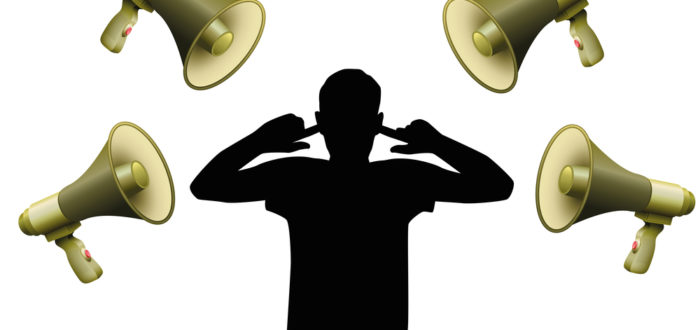Not all hearing loss is preventable. Presbycusis is hearing loss that is the result of the natural aging process. By the time we reach 75 years of age, an estimated 1 in 2 of us will have hearing loss. Hearing loss can affect people of all ages, and is more common than you may realize.
This does not, however, mean that you have to accept hearing loss as an inevitable part of getting older. The natural aging process is not the only cause of hearing loss. In fact, there are lifestyles and environmental factors that can contribute to hearing loss.
To help protect your hearing, it’s important to understand these 6 things that can damage your hearing.
6 Things That Can Damage Your Hearing
Hearing loss can affect our lives in a variety of ways. When left untreated, it can result in social isolation, loneliness, and more. Help to look after your hearing health by understanding things that can potentially damage your hearing.
Noise
Noise-induced hearing loss (NIHL) is hearing loss that is caused by exposure to loud noise. This can be caused by exposure to a sudden loud sound, such as an explosion. It may also be the result of repeated exposure to dangerous noise levels, for example on a construction site.
According to the CDC, noise has damaged the hearing of up to as much as 24% of US adults. Things that can cause noise induced hearing loss include:
- Loud concerts
- Fireworks
- Construction tools / equipment
- Recreational sports such as hunting
Interested in learning more about noise induced hearing loss, including symptoms and treatment options? Click here to read more.
Smoking
The negative impact that smoking has on our bodies is well documented. But can smoking affect the health of your hearing? Research is increasingly showing that “yes”, smoking can affect your hearing health.
Last year, Reuters published the findings of a study highlighting that smokers were 60% more likely to develop high frequency hearing loss than non-smokers. The study further outlined that the risks increased with each additional cigarette a smoker has on a typical day.
The study also outlined that risks of hearing loss decreased within 5 years of quitting smoking.
Medication
Certain medications are referred to as ‘ototoxic.’ Ototoxic means ‘toxic to your ear.’ Ototoxic hearing loss is damage to your hearing that can be the result of your medication.
There are over 200 medications that are known to be ototoxic. These include:
- Aspirin
- Certain diuretics
- Quinine
For more information on ototoxic medication, click here.
Allergies
Seasonal allergies come with a host of symptoms. For allergy sufferers, they are familiar with many of them. Itchy eyes, runny nose and congestion are just a few.
Seasonal allergies can, in some cases, result in hearing loss. An allergic reaction can cause congestion and swelling which in turn can affect your ears. Read more about how allergies can affect your hearing here.
Illness
There are a number of illnesses that can potentially damage your hearing. The common cold or influenza can cause a type of hearing loss known as conductive hearing loss.
Conductive hearing loss is the result of sound being unable to travel through your outer or middle ear. Inflammation and swelling that can accompany a cold or influenza can cause this swelling. In most cases, hearing loss that is the result of an illness will clear up. If you are ill and experiencing changes to your hearing, we recommend speaking to your primary healthcare professional.
Diabetes
Up to 30 million Americans have diabetes. Most of these people have type-2 diabetes, which can develop at any age. Increasingly, research is pointing to the connection between diabetes and hearing loss.
This type of hearing loss is the result of damage to the delicate network of blood vessels and nerves in our ears. Researchers do not yet fully understand the cause of hearing loss in people with diabetes. Read more about diabetes and hearing loss here.
Trust the Professionals at Hearing Balance & Speech Center
The best way to look after your hearing is to stay on top of your regular hearing assessments. Your hearing healthcare professional will be able to identify any changes to your baseline hearing. They can then advise on the best options to help you hear your best.
If you’d like to discuss hearing aid further, the hearing healthcare specialists at Hearing, Balance & Speech Center would be happy to help. If you’d like to book an appointment, please call us today on 203-774-5642 or request an appointment online.

